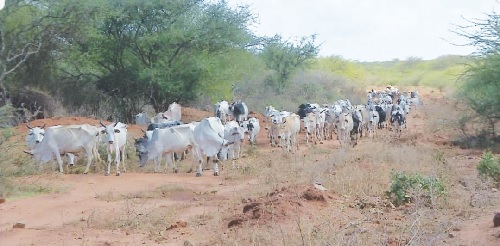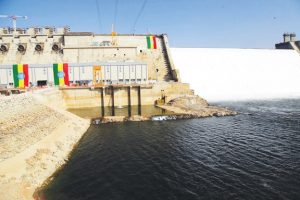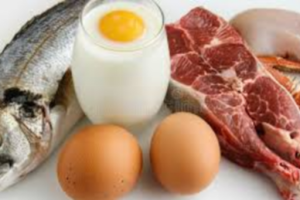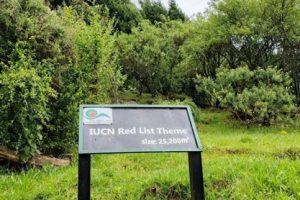
BY DARGIE KAHSAY
Ethiopia’s neighbour, Somalia declares a national state of emergency last week as worsened drought affects the human and animal food security of the country. According to reports, Somalia’s 80 per cent of the country is hit by drought, leaving over two million people food and water shortages.
Somalia’s drought currently needs an urgent response to help the people from the effects of the drought-driven food shortage. Declaring the state of emergency, Somali Prime Minister Mohamed Hussein Roble said that the situation is very dire which needs an immediate response.
According to international media reports, the Pastoralists in Somalia are losing their livestock due to the escalating drought. Somali’s drought was reported months where livestock was reportedly perishing. Now, within months, the drought impact is affecting the livelihood of the people of Somalia which leads to food insecurity and water shortages for millions of people.
Meanwhile, CGTN Africa reported last week that Ethiopia’s neighbour, Somalia is experiencing extremely severe drought due to seasonal rains failure, citing the FAO report. The severe drought conditions in Somalia come at a time when an estimated 3.5 million Somali’s already face acute food insecurity, and the number of severely malnourished children is also on the rise, it added.
The U.N. Food and Agriculture Organization warns food insecurity is projected to worsen significantly through May 2022 in Somalia, with many households experiencing widening food consumption gaps. Currently, Somalia’s drought is affecting the livelihood of the people through the drought impacts started by perishing livestock.
Drought is also reportedly killing livestock in some parts of Kenya though the drought in Kenya is not as such worsened. Similarly, drought is reportedly affecting livestock life in Ethiopia’s Borana Zone of Oromia state though efforts are underway to control the effects by providing animal food.
This indicated that in the Horn region, drought is becoming a headache that is affecting the livelihood of millions of people mainly the pastoralist community since the life of pastoralists is dependent on livestock production. Hence, countries and donor organizations should work hand-in-hand to control the effects of the drought before it becomes out of control in the region mainly by providing animal food to the pastoralist community to save their livestock.
Currently, the Borana Zone of Oromia state is fighting with drought-driven animal food shortage where thousands of animals reportedly perished. Thousands of cattle in Borana also are struggling with the drought though efforts are underway to provide
fodder and hay by the regional state and other federal and regional institutions. Still, there are limitations of providing adequate animal fodder and hay to the area, according to the local government officials in Borana.
The livestock food shortage in Borana happens following a drought caused by a lack of rain in the area. The drought is somehow expanding to other areas including some parts of the Somali regional state of Ethiopia which needs strong preparations to provide animal food mainly for the livestock.
Borana and its surrounding are known for their huge livestock resource with unique species. The area is among the top livestock producers of Africa’s top livestock resource nation and the livestock are the only source of livelihood for the society. Speaking to local media, Borana Zone Pastoralist Development Office Head, Dr Qasim Guyo said that so far tens of thousands of cattle are already perished adding hundreds of thousands of cattle are at high risk due to lack of food.
Qasim reiterated that over 28 thousand households have lost around 70 thousand of their cattle adding over 11o thousand cattle owned by over 50 thousand households are at a high risk which needs urgent food support. The office head further stated that the drought beyond its impact on the animals is now becoming a food security crisis in the Borana area.
Recently, the Haramaya University team has visited the Borana Zone using animal fodder and hay to provide support to society. Member of the University team Nuru Mohamed noted that the drought impact in Borana is devastating adding the source of the societies livelihoods, the cattle, are perishing. The area needs urgent and sustainable support and other support mechanisms including creating market opportunities since hundreds of thousands of cattle are a risk.
Nuru said that hundreds of thousands of cattle are waiting for urgent food provision in Borana. Since the other part of the country has enough resources in fodder, hay and straw, collecting and mobilizing the resource effectively would help the area to save more cattle which is the life of the society’s population. Qasim on his part stated that the drought problem is expected to continue up to the next five months with more severe impacts. Hence, he said, to control the problem, before it’s too late, the time to take appropriate action is now and Ethiopians should collaborate in supporting their brothers in Borana.
For Nuru, the immediate solution is mobilizing straw, fodder and hay from different parts of the country and distributing it to the area community in Borana to save their cattle from perishing. If managed well, there is enough resource that can feed even more livestock in Ethiopia since the other part of the country has enough rain during the rainy season, he added. In addition, he said, institutions and organizations may also think to buy cattle from Borana especially cattle fatting investors, researchers investing in cattle research and higher education institutions to support the community and to save the species of the Borana cattle from extinction. In addition, it helps to expand the species of Borana cattle if higher education research institutions give attention to collecting cattle from the area and adapt and hybrid them in their areas.
In addition to in Borana Zone of Oromia state, drought is also affecting in some parts of Somali State where cattle starts perishing. This indicated that the problem is expanding and its impacts are widening which needs preparations and urgent action to control it before it becomes out of control.
Recently, the Ethiopian Ministry of Agriculture has provided dry animal feed procurement to the Borana Zone. Ministry of Agriculture provides a bunch of 77 thousand animal fodders with the cost of Birr 18 million.
During the handover ceremony of the fodder from the Ministry of Agriculture, Deputy Head of Oromia Agriculture bureau, Tollera Debella said that the drought in Borana is taken place in eleven woredas adding the regional state is trying its best to save the animals suffering from drought by mobilizing resources. Fodder, water and other processed animal feed support are offered by different institutions, according to him.
Qasim stated that during the initial report period of the drought, the mobilization and support was satisfactory. But currently, the support decreases though the problem is continuing and worsening.
This indicated that drought in the region is becoming a threat for animal and human food and water shortage and to adapt to the drought-driven crises, it needs strong preparations and measures to control the current drought happenings within Ethiopia’s border areas before it becomes out of control.
Ethiopia is producing tens of millions of cereal straw annually from different cereal crops mainly Teff, barley and wheat during the crop production season. The cereal straw is a very important resource in feeding livestock mainly cattle. Considering its benefit, farmers conserve straw during the mehere season parallel to their cereal product. But during the mehere season, a huge amount of straw is wasted with unmanageable conservation mainly due to time constraints by the farmers since they are busy collecting their crop production.
Since cereal straw is crucial animal feed especially during drought, collecting and managing the available resource is helpful to tackle drought-driven animal food shortage mainly in lowland areas of the country. Considering this in mind, since we are in a crop production season, collecting the cereal straw resource timely and properly can save many livestock lives.
The Ethiopian Herald November 30/2021





